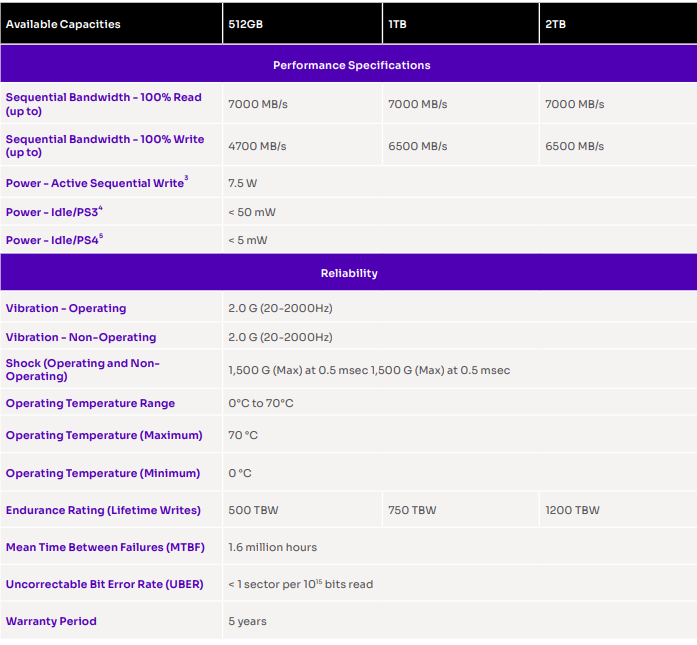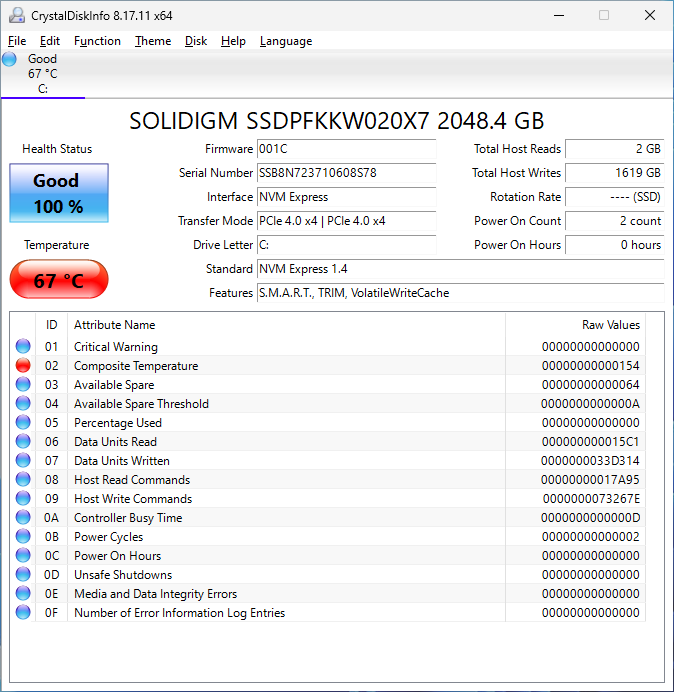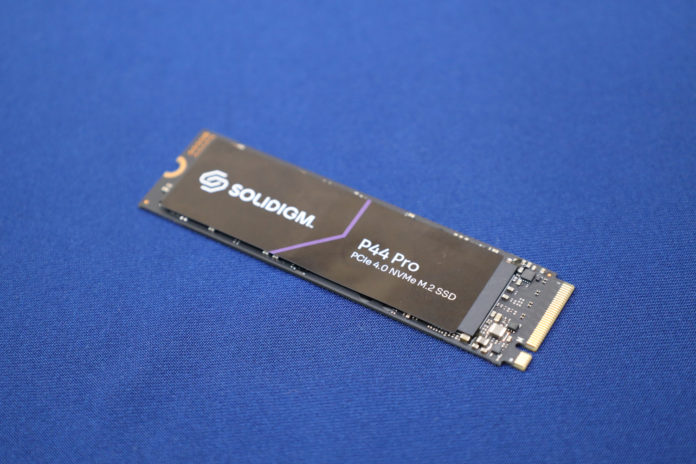Today we are looking at the Solidigm P44 Pro 2TB SSD. Solidigm has a series of SSDs that we have taken a look at, with mixed results. The P41 Plus did not do particularly well in our testing, while the P41 Platinum did very well. The P44 Pro represents Solidigm’s high-end offering under their own name, where the P41 Platinum was released under the SK hynix branding. The P41 Platinum was a great drive, so I have high hopes for the P44 Pro. Unfortunately, I did not test the P41 Platinum at the 2TB capacity point, so I do not have a direct comparison between the two drives, but I can still dig up some useful comparison points.
Solidigm P44 Pro 2TB NVMe SSD
The Solidigm P44 Pro 2TB comes in a single-sided M.2 2280 (80mm) form factor.

The Solidigm P44 Pro is very similar to the previous P41 Platinum. Both drives utilize SK hynix’s Aries controller, 176-layer TLC NAND, and a LPDDR4 DRAM cache. As far as the outward appearance, the P44 Pro and P41 are nearly identical except for the different label.

The back of the P44 Pro has a label and nothing else. There are a bunch of silkscreened logos that were not present on the P41.
Solidigm P44 Pro SSD Specs
The P44 Pro line of SSDs is available in sizes between 512 GB and 2 TB.

The Solidigm P44 Pro we have today is the 2TB model, which sits at the top of the product stack. Sequential read speed is listed at 7000 MB/s, and write speeds sit at 6500 MB/s. Notably, these are identical specs to the P41 Platinum, which is perhaps to be expected given the hardware similarities.
Endurance comes in at 1200 TBW for the 2TB SKU, which is right on the line with what I consider good enough for the capacity point. Endurance per unit of capacity, unfortunately, goes down as the capacity goes up, but it never becomes a problem. The warranty is the industry-standard 5 years for a premium drive, which is always welcome to see.

CrystalDiskInfo can give us some basic information about the SSD and confirms we are operating at PCIe 4.0 x4 speeds using NVMe 1.4. Additionally, this is a 2048 GB drive and not a 2000 GB unit, which represents a bit of extra capacity for the user. Do not mind the red temperature alarm, I just took the CDI screenshot at a different point in my testing and caught it while the drive was still hot.
Test System Configuration
We are using the following configuration for this test:
- Motherboard: ASRock X670E Steel Legend
- CPU: AMD Ryzen 9 7900X (12C/24T)
- RAM: 2x 16GB DDR5-6000 UDIMMs
Our testing uses the Solidigm P44 Pro 2TB as the boot drive for the system, installed in the M.2_1 slot on the motherboard. This slot supports up to PCIe Gen 5 x4. The drive is filled to 85% capacity with data, and then some is deleted, leaving around 60% used space on the volume.
Next, we are going to get into our performance testing.





Just use a tower cooler so you don’t invalidate an entire generation of ssd testing thermal data? Seems fairly straightforward to me.
Would this be good for use in a laptop? Trying to find something in the 2TB range, and mainly concerned about heat and endurance